Math Tools
Materials to help "mathify" play and spark math talk in your home
You don't need any special materials to add more joyful math into your home, but adding a few small items can bring more playful math into your child's favorite games and activities! Here are some of my favorites and a few words on how I'd use them to spark joyful math interactions.
Check out the Grow Into Math Instagram for more detailed ideas on how to use these materials and other ways you can support your child's early math learning through play.
Open-Ended Math Tools
These flexible tools can be added to almost any activity to bring counting and math talk to your child's everyday play. Try rolling dice to build towers of different heights, or picking a card to decide the prices for a pretend ice cream shop. These seemingly small interactions add up to build your child's confidence and meaningful early math skills.
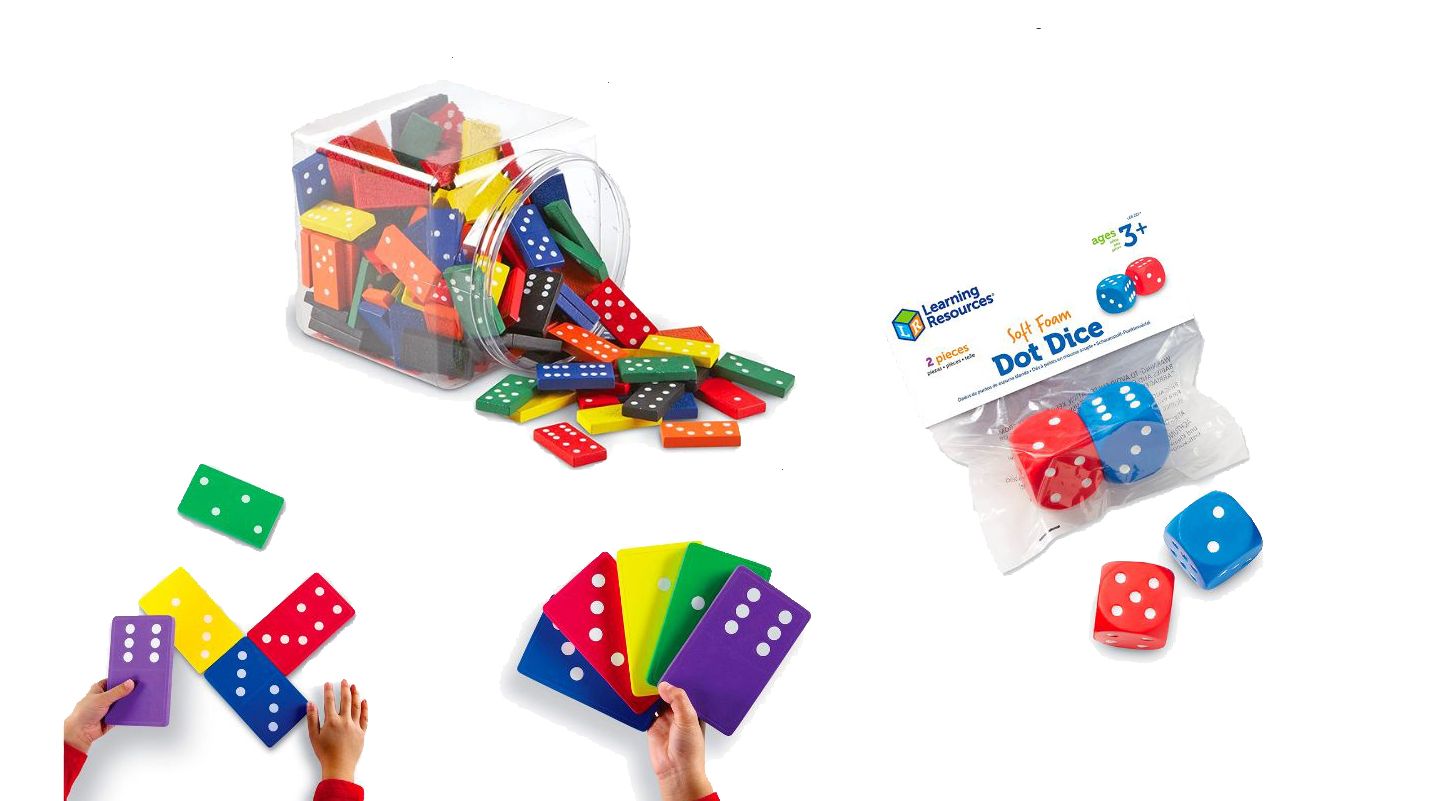
Counters
Counters of different styles offer ways to spark open-ended math play, regardless of your child's interests. Try using them as pretend food or money during imaginary play, or arrange them in different ways to make patterns.
Follow your child's lead and encourage math talk along the way!
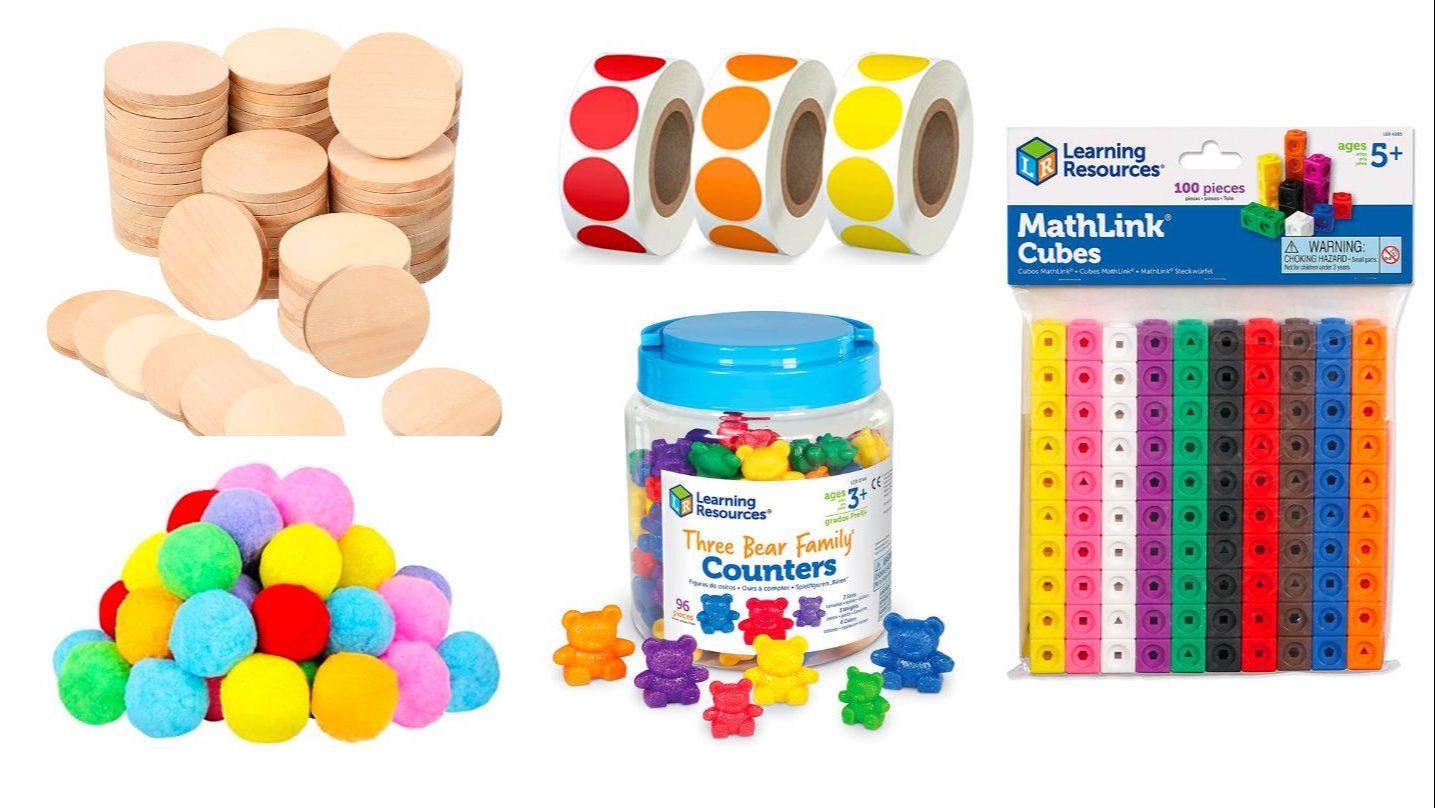
Building Toys
Building toys support spatial reasoning and practice identifying colors and shapes - all in the context of open-ended play! Try adding dice or dot cards to block play to help spark even more math talk.
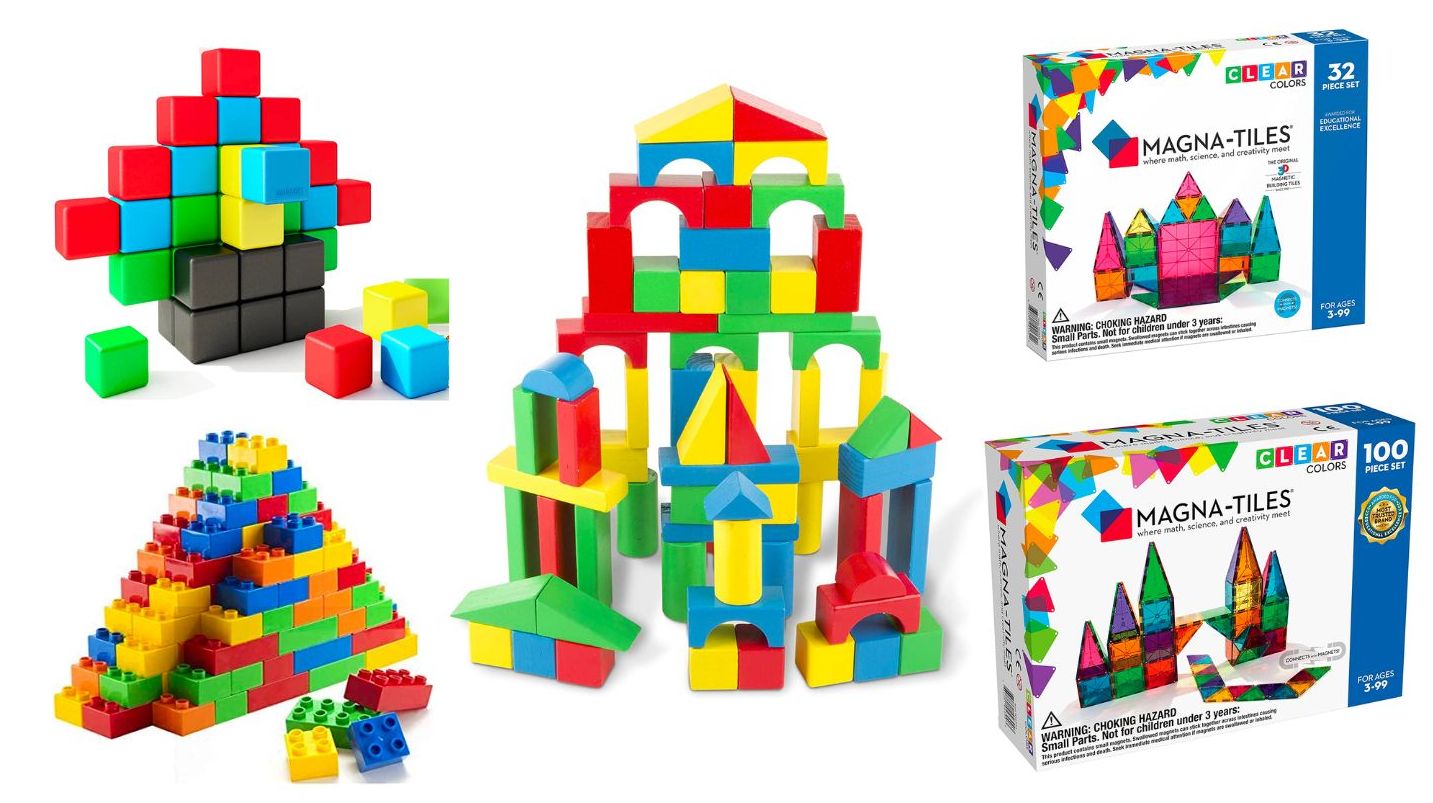
Sensory Play
Ditch the worksheets and try out these fun ways to add physical movement to math learning. One of the most important concepts in early math is understanding the order of numbers, and their relationships to each other, so bringing number lines and numerals into the real world is a great way to help kids make those connections while moving their bodies and having fun!
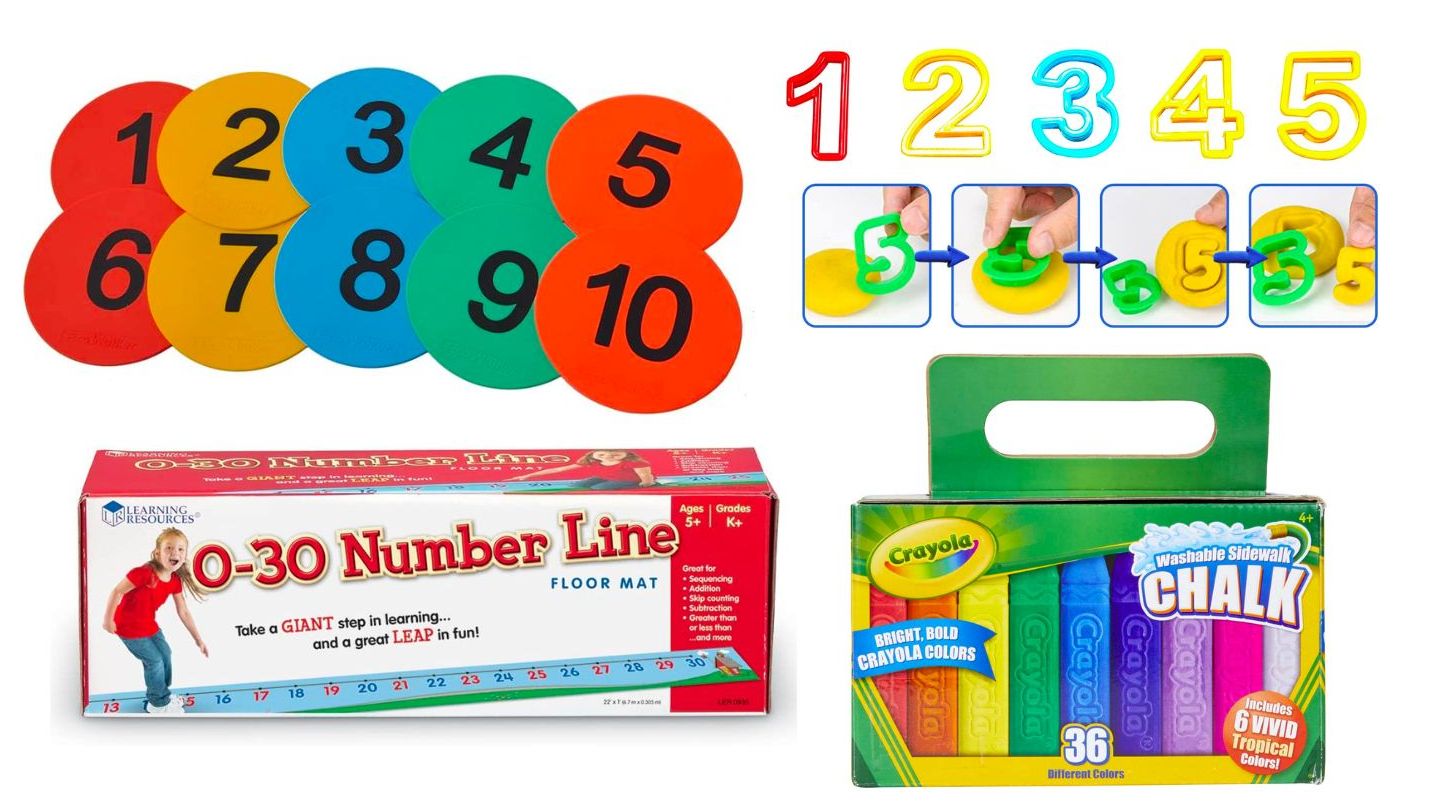
Puzzles
Puzzles are great for spatial reasoning and for sparking conversations about color matching, shape, and rotation. I also love pattern blocks as a creative way to learn about color and shape through art-making.
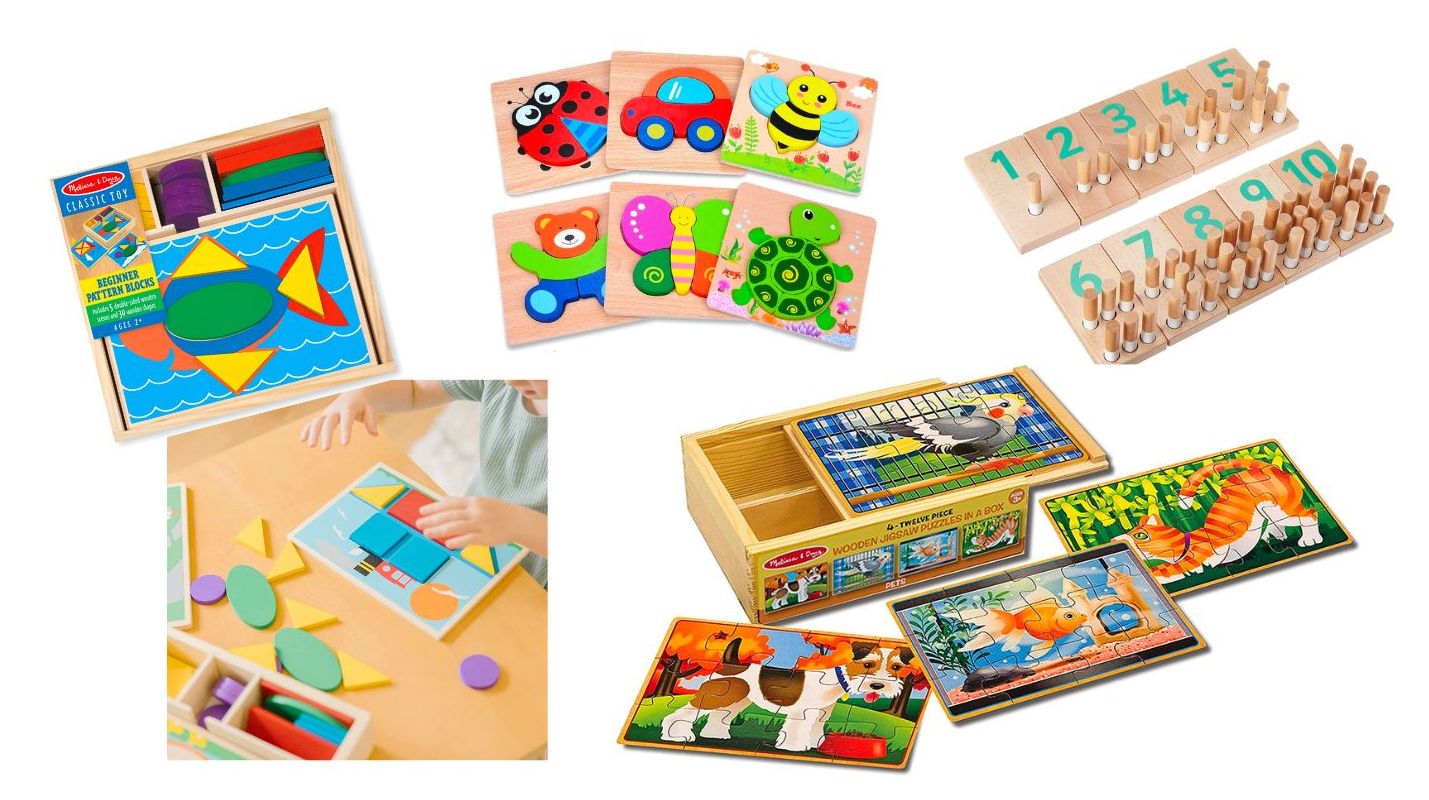
Ten-Frames
Ten-frames offer kids an easy way to visualize numbers, and understand the relationships between numbers that add to ten. This makes them a great jumping-off point for learning about addition and subtraction using hands-on experience instead of memorization.
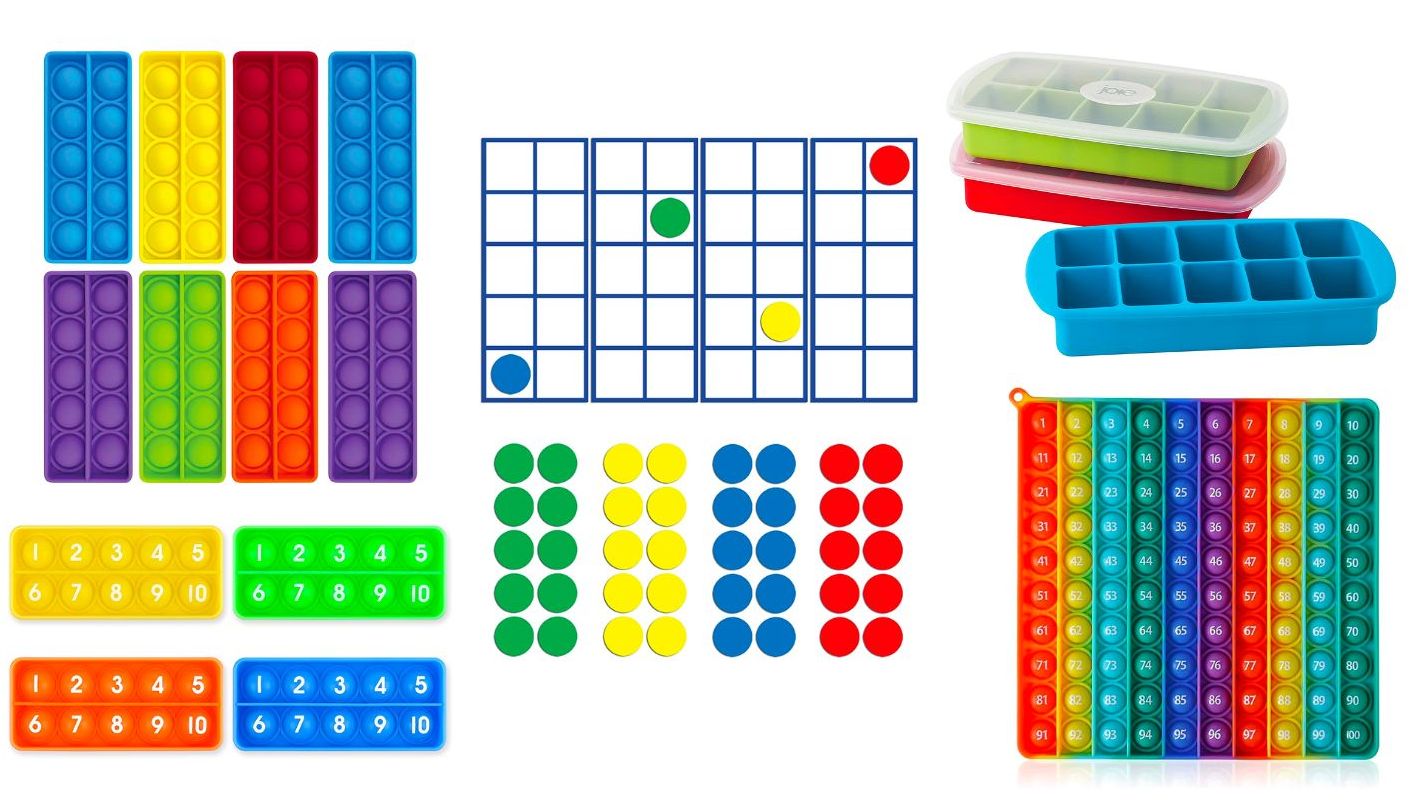
Basic Tools
A few extra tid-bits that are nice to have around. If you are inspired to DIY, many Grow Into Math activities can be put together using these simple materials.
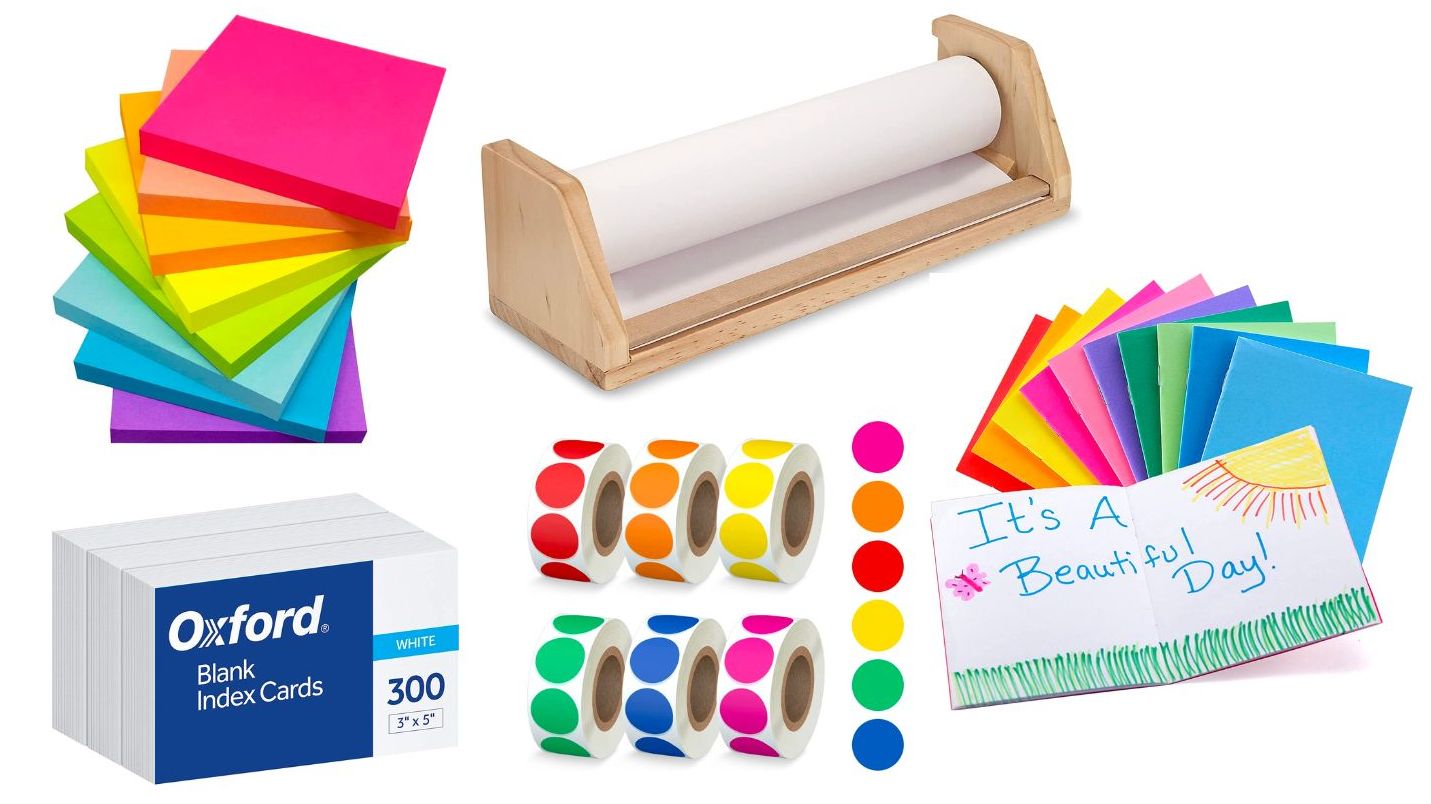
Disclosure: As an Amazon Associate, Grow Into Math earns from qualifying purchases. This means that if you choose to purchase after clicking a link, we may receive a commission (at no cost to you). We appreciate your support!
